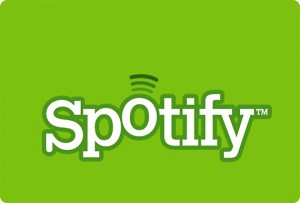2011: The Year In Music
For those who truly choose to recognize it, three major shifts happened in 2011. Â The first, as is apparent during this year’s Listmas (and will be apparent on my year-end lists as well) is the resurgence of irreverent, smart hip-hop and what is half-mockingly referred to as PBR&B. Â The introspection of 2010’s hottest rappers (you know, when Eminem got all mature and serious and junk) has caused a shift in the landscape. Â As rap has been semi-tossed aside in the pop world in favor of the Eurodance craze, rappers have become more….sad. Â And real. Â And risk-taking. Â And progressive. And brilliant. Â Drake crooned, the Weeknd swooned, Big K.R.I.T., Danny Brown, Kendrick Lamar, and A$AP Rocky all impressed.
The second one is more important to the industry as a whole: Spotify. Â Its launch in the US has caused nothing short of a revolution: millions have signed up for the service, initiating a preference for a streaming-based distribution model over downloading iTunes files. Â Spotify isn’t the first of its kind, but certainly its connections and marketing have made it the poster-child for what many are calling the next pivotal shift in how we listen to music. Â A vibrant, passionate discussion has formed from the company’s popularity; the service has caused its share of controversy and criticism regarding royalties and high-profile artists like Coldplay and the Black Keys opting out. Â Certainly the model isn’t perfect, but could it be the new blueprint? Â One thing is for sure: the business of digital music is crazy exciting right now.
The final shift in 2011 happened to me personally, it really wasn’t an event, more of a realization. Â I became aware of my adulthood, I suppose, probably for the first time ever, and it has affected my listening habits and preferences. Â Not that I’m listening to “mature” music now….quite the opposite, in fact. Â I guess I just finally decided life is too fucking short to be pretentious, and that we should just listen to whatever we want. Â Though I suppose I’ll always have these so-called “hipster tendencies,” I’ve begun to embrace my love of escapist music, of pop, of rap, of dance, of strong melody, of hooks. Â Because, to me, music is probably the most important thing in my life, and it is meant to be stimulating, challenging, but also, prominently, and this is the part we forget in college, kids, it is meant to be enjoyed. Â And if I sit around listening to shit I don’t like all the time because I was told it was awesome or groundbreaking, I will die a sad, pompous, stuck-up old man. Â So live your life, and stick to your guns. And dance if you want to, damnit. Â And listen to music that makes you feel good. Â Because this is your life, and you only get one.
One other thing I would like to mention that 2011 will likely be remembered for, but is of no consequence to me: this is the year Adele took over. Â And so emerges another AC-friendly artist that the world adores, but I am left all by my lonesome to proclaim: “Meh.” Â And look at that: I’m bored already just talking about her. Â Damn, there I go again! Hipster tendencies…..baby steps.
So here is the blog schedule for the remainder of 2011. Â Stick around and be prepared to disagree! Â Should be a grand old time.
December 15: My Year In Live Music
December 16: Most Overrated Albums of 2011
December 17: Most Disappointing Albums of 2011
December 18: Top Music Videos of 2011
December 19-23: Top 200 Songs of 2011
December 24: Top 20 Remixes of 2011
December 25: Honorable Mention Albums of 2011
December 26-30: Top 50 Albums of 2011
December 31: Top TV Shows of 2011
January 1, 2012: Quarterly Review
